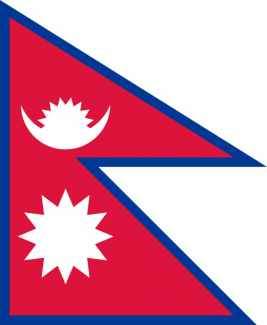Practical Consideration: An Immediate Exigency in the Indo-Nepal Relation
Cross-border threats, which involve an influx of counterfeit currencies, illegal arms, smuggling of narcotics, illicit wildlife trade and its derivatives and cross-border terrorism, are gaining momentum along the 726-kilometre-long porous India-Nepal border. It is a grave concern for India, considering the present political instability in Nepal. Despite a broad agreement not to allow respective territories to be used against one another and to form a Bilateral Consultative Group on security-related issues between two Prime Ministers in August 2009, both countries have failed to sign the vital extradition treaty. The treaty has been delayed due to non-compliance from the Nepal government. It is believed that China has vehemently opposed the treaty for strategic reasons.
In retrospect, the two countries entered a strategic partnership by signing a treaty in 1950. The terms set the tone of their current relationship. The border was opened for the free movement of people and goods, and close collaboration was sought in defence and foreign affairs. However, specific provisions in the 1950 Friendship Treaty, such as Nepal's needing India's permission before it can buy weapons from any other country, have recently caused the Nepalese to look upon this with resentment.
The resentments have been so strong that it reached the zenith of demanding to scrap the treaty. Subsequently, many Nepali leaders used the so-called 'China card' against India with the hope that India would discard its highfaluting conduct towards the Himalayan country. These Nepali leaders conceive that India views China as its adversary, as was evident in the Nehruvian speech, “We cannot allow that barrier [Himalayas] to be penetrated. Therefore, much as we appreciate the independence of Nepal, we cannot allow anything to go wrong in Nepal[…] because that would be a risk to our security.”
On the same breadth, some Nepali think tanks are also aware that overindulging in the Chinese factor could prove detrimental to it, as experience shows that the Chinese extract more than they contribute. For that reason, Nepal continues to maintain affable relations with India.
Hence, India has been playing the role of a big brother, giving Nepal as much largesse and favour as any other country would. India has now agreed to condescend to Nepal’s much-yearning solicitation of reviewing the 1950 Treaty and further strengthening the bilateral relationship. This step of reviewing the treaty is a very welcome step, as the new treaty can address the contemporary issues that loom and benefit both.
Among all contemporary issues that concern India is that Nepal is being used as a transit point by terrorists. The security and intelligence agencies of India have gathered ample evidence of Pakistan's engagements in pushing terrorists into India by using the porous India-Nepal border. The arrest of Mohammed Umer Madani, a top operative of Lashkar-e-Taiba (LeT), in June 2009 confirmed this claim. Madani headed the operation in Nepal and is also said to be a close aid to LeT founder Hafiz Saeed. He provided Lashkar operatives with passports, cash and communications facilities, allowing them to travel from Pakistan to India through Kathmandu and secure their escape. Other terrorist groups like Harkat-ul-Jihad-al-Islami (HuJI), Jaish-e-Mohammad (JeM), among many others are also said to have been functioning from Nepal.
Nepal is in no position to take concrete action in this regard, citing its political disturbances. Nonetheless, India is very capable of annihilating the terrorist network active in Nepal. The only requirement is the same will and determination that was used to flush out the separatist group, United Liberation Front of Asom (ULFA), from Bhutan.
Seeking concerted global action against terrorism is a distant mirage. India should realize that its problems are its own, not the world's. It will have to take decisive actions on its own. Practical considerations limit India from taking any step against the terrorists working against it in Pakistan. But India can do that in Nepal with the help of the Government in Kathmandu. Zero tolerance should be the tone from the Indian side. Whatever the political situation in Nepal, India cannot compromise with its security concerns. It can’t wait until the Maoist in Nepal develops reverence towards India. The Maoists have to be brought into confidence. It is then, and only then, will the two countries move forward towards becoming friendly neighbours.
